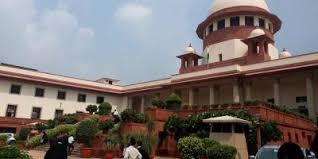Constitution of India, Article 14 and 226 – Service Law – Recruitment – Post of primary school teacher– Non-selection – Modification of relief –Compensation – Denial of 6 marks for the additional qualification of a PG Degree to the petitioner -Respondents raised the standard defence by invoking Clauses 14 and 19 of vacancy circular to submit that they have reserved the right of short listing candidates as is considered appropriate and that the appellant cannot be given the benefit of 6 marks for additional qualifications as he did not possess the PG Degree in the “relevant subject” – Held that Clauses 14 and 19 of the vacancy circular do nothing more than reserving flexibility in the selection process – They cannot be read to invest the Institute with unbridled discretion to pick and choose candidates by supplying new criteria to the prescribed qualification – Notification dated 27.04.2016 providing for additional qualifications under clauses ‘a’ to ‘d’ are under two categories – While ‘a’, ‘b’, and ‘d’ relating to PG Diploma, PG Degree, and PhD are general qualifications providing for 5, 6, and10 marks respectively, the category under ‘c’ relates to Professional Qualification in the field – This is where specialization is prescribed -If one add the requirement of specialization to category ‘b’, i.e., PG Degree, then that category becomes redundant – The whole purpose of providing PG Degree independently and allocating a lesser quantum of 6 marks will be completely lost if such an interpretation is adopted – This can never be the purpose of prescribing distinct categories -Decisions of the Single Judge and the Division Bench held to be not sustainable, and liable to be set aside – School for which the advertisement was issued was closed on 01.04.2023 – In view of the closure of the school, cannot direct the respondent Institute to employ the appellant as a primary school teacher – Institute(respondent no. 2) directed to pay an amount of Rs. 1,00,000/- as compensation.(Para 10 to 12, 16 and 26)
SUPREME COURT OF INDIA
2024 STPL(Web) 112 SC
[]
Manoj Kumar Vs. Union Of India & Ors.
Civil Appeal No. 2679 of 2024 Arising Out Of Slp (C) No. 5278 of 2019-Decided on 20-2-2024
https://stpllaw.in/wp-content/uploads/2024/04/2024-STPLWeb-112-SC.pdf







